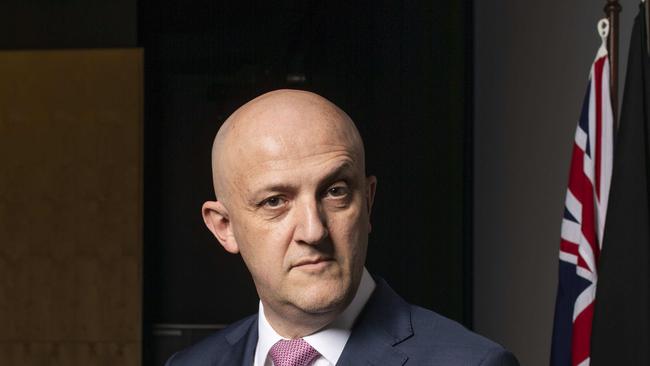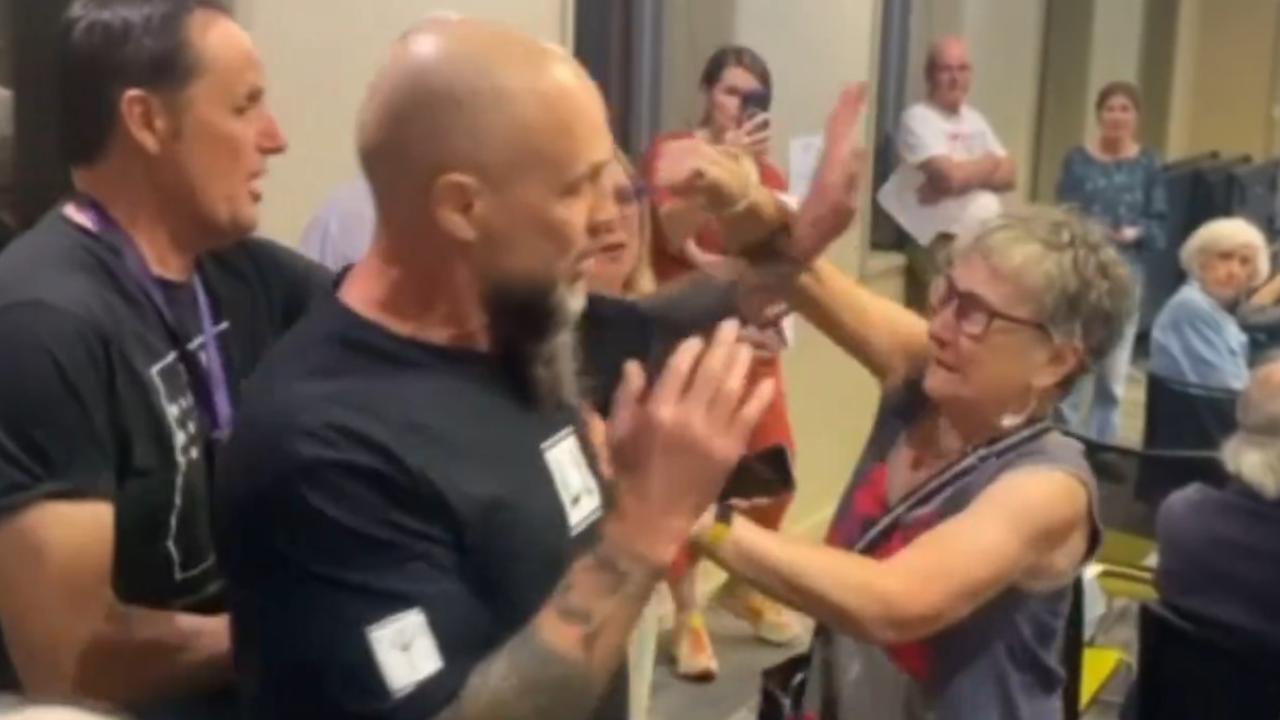Coronavirus: Spies on rise during pandemic, ASIO chief says
ASIO chief Mike Burgess has warned of a spike in online threats during the COVID-19 pandemic.

ASIO chief Mike Burgess has warned of a spike in online threats during the COVID-19 pandemic, confirming “increased chatter” in the spread of “extremist ideology attempting to radicalise people”, a rise in cybercrime and spies ramping-up espionage activity.
The Australian Security Intelligence Organisation director-general has also put pressure on tech companies to stop pushing back against governments in dealing with “abhorrent behaviour”.
Mr Burgess said people forced to stay home during the pandemic, including spies, criminals and terrorists, had enhanced online risks.
“We’ve seen more people at home, and as they’re at home they’re online and we’ve seen increased chatter in the online world when it comes to the spread of extremist ideology attempting to radicalise people,” he said.
“We’ve seen more of that just as we’ve seen more criminal behaviour online, cybercrime, which is well reported by other agencies.
“Espionage is the second-oldest profession on the planet, perhaps the first, and it hasn’t gone away. More activity online of people, spies are constrained on the streets, so the problem hasn’t gone away — in some cases, things have got busier, especially in the online space.”
Mr Burgess, speaking in a podcast released by the Institute of Public Administration Australia on Tuesday, outlined the evolving threats on online platforms operated by tech giants.
The former Australian Signals Directorate head, who shifted to ASIO in September, said while the internet was a great benefit to society in connecting people, there was also a “downside”.
“The downside is strangers can meet you online and cultivate a relationship with you and obviously spies do that, criminals do that, and their intent is to connect with you, link with you and exploit that relationship to their benefit,” he said.
For hackers, “it’s their intent that matters so if they connect with you, what they do next is a matter of intent not really technical capability, so it’s a world of opportunity for criminals and nation-states and extremists.”
Mr Burgess said while closed online groups and other forms of private communication were “a good thing”, the challenge was when a legal need arose to access information and digital companies refused to co-operate.
“The real challenge comes when you have a lawful need, so the police are investigating something or ASIO is investigating something and they’ve got a warrant and they want to get access, and those providers actually refuse to co-operate with governments. That’s a problem for me because as societies, especially democratic societies, we operate within the rule of law.
“Yes, privacy is paramount, but privacy is not total because there’s a balance between privacy and security, and under the rule of law when appropriate warrants are in place, law enforcement or ASIO should … get access to something.”
Mr Burgess said as a society, there was general acceptance that police or ASIO could seek a warrant to “bug someone’s car or someone’s house”.
“Why should cyberspace be any different? Yet every time we have these conversations with the private sector companies, they kind of push back and say, ‘No, we’re not so sure about that’.
“In having this conversation, if there are other members of our society in the room, they would say ‘But you’re the deep state, you want to look at everything and you’ve got no oversight and you keep asking for new laws’.
“Well, all that is just nonsense. We ask for laws that are proportionate to the threat we’re dealing with and, actually, ASIO is subject to independent oversight. First and foremost in that is the Inspector-General of Intelligence and Security.”
Mr Burgess said with “appropriate oversight and the appropriate laws”, he did not support private sector companies that pushed back against government.
“The other angle that we come at this from is actually when a terrorist event occurs and then someone puts that footage online, or is broadcasting that online, and the companies that are facilitating the live-streaming of the death of people actually find it really difficult to co-operate on actually … blocking that material or having it removed as quickly as possible,” he said.



To join the conversation, please log in. Don't have an account? Register
Join the conversation, you are commenting as Logout